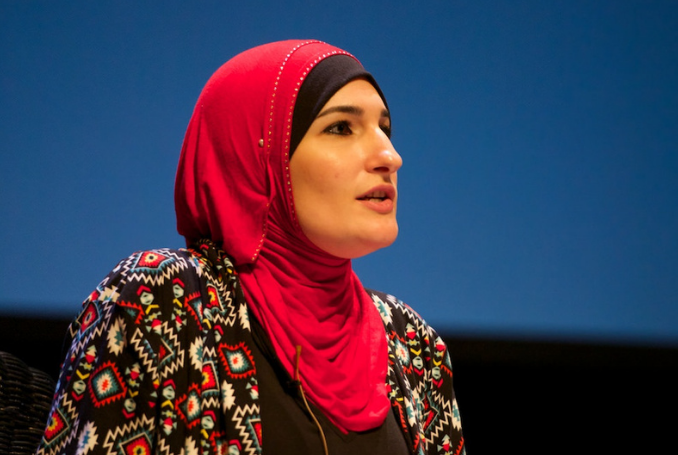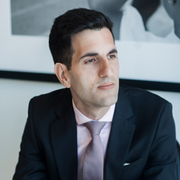
This week American car insurance company, GEICO, extended an invitation to Palestinian activist and author, Linda Sarsour. Following protests against the invitation by pro-Israeli groups, the invitation was rescinded two days later, along with this public message from the company:
“We apologize to our employees, customers, and others for our initial plan to invite Linda Sarsour to speak at our internal event celebrating Middle Eastern and North African (MEN) Heritage Month. On Tuesday, we quickly canceled the event.
“GEICO does not condone hatred of any kind, and we do not stand for anyone who does. We are not aligned with any form of exclusion.”
Predictably, pro-Israeli groups approved of the decision, charging (without substance) that Sarsour is “antisemitic.” The charge, in reality, amounts to silencing pro-Palestinian voices that are rightfully critical of Israel for the illegal occupation of Palestine and making life unnecessarily miserable for the Palestinian people themselves. Being intolerant of the oppression of human beings will get you labeled by some as hateful.
I think it’s particularly important to think about what’s happened to Sarsour at the present moment, where the West—supported by pro-Israeli groups—is unapologetically imposing sanctions for its crimes against Ukraine. There’s no real need to get into the legitimacy of that. Russia’s invasion of Ukraine violates international law and is causing immense suffering and loss of life. Surely the sanctions are warranted.
Against the backdrop of the sanctions, however, Sarsour’s cancellation means this: you may, like us, be critical of Russia and Putin. In fact, we welcome that because, aside from the moral legitimacy of such criticism (something we ultimately don’t care about), it serves our larger interests of undermining Russian power. Should you speak against Israel though we will punish you.
Interestingly no one it seems, at least in the Western mainstream, is calling the harsh yet justifiable treatment of Russia “anti-Russian” or, more preposterously, “anti-Christian” on account of Russian President Vladimir Putin’s religion. By the logic of pro-Israeli groups, representative of the mainstream in question, we ought to. After all, they see it as fair game to smear those critical of Israel as being contemptuous of the religion associated (but not constitutive) of it.
In his seminal work, The Prince, Italian philosopher Niccolò Machiavelli writes:
“A ruler must…act in such a way that everything he does gives an impression of greatness, spirit, seriousness and strength; when presiding over disputes between citizens he should insist that his decision is final and make sure no one imagines they can trick or outwit him.”
Contrary to a leader of this kind the West, as seen in the national government where I live (Canada), lacks backbone when it comes to holding Israel accountable, let alone taking it to ask for crimes it commits against Palestine. If not going along outright with pro-Israeli groups, it constantly wavers or fails to commit to a position that says, “Israel is wrong in its mistreatment of Palestinians. They are breaking international law in the process and if they don’t stop we’re going to impose sanctions against them.”
This appears all the more perplexing when one considers Canadian Foreign Affairs Minister Melanie Joly’s recent statement that Canada intends to “suffocate”, through sanctions, Russia for its criminal violence against Ukraine. Why the double standard?
In keeping with Machiavelli’s observation, the West’s constant bending to the will of how Israel would like to be seen instead of doing what’s right makes it contemptible, in so far as any moral actor (person, state, etc.) eventually becomes very unlikeable for honoring the will of an oppressor when it can do otherwise. It should be sanctioning Israel as it is Russia but instead conforms to its desire to brutally subjugate Palestine–without consequence. Shameful that the West continues to do this while calling Israel a “democracy.”
A moral society on the other hand is both serious about anti-Palestinianism and antisemitism. Not only are both wrong but the human rights they attempt to undermine, namely the dignity and safety of persons, are common to both. By the same token, they are equally wrong.
Israel, however, nor the West more generally, is serious about eliminating antisemitism. It is serious rather in using the term to publicly and unfairly delegitimize those like Sarsour, fighting for Palestinian justice. This complements the ethnic cleansing of Palestine by Israel.
The reprehensible nature of this cannot be overstated. Aside from being racist against Palestinians, it siphons attention away from actual antisemitism in the world. If Israel were serious about combatting antisemitism then it’d have a lot more allies who are also fighting for Palestinian justice; many, such as Independent Jewish Voices (which I’ve written about here), are doing just that. It should be no surprise since people who take combatting racism seriously mean abolishing it in all its forms.
GEICO canceling Sarsour is hardly an example of this. It only confirms how much the West has normalized anti-Palestinianism and how far we have yet to go before we eliminate it for good. Israel will call such a laudable endeavor “antisemitic”, seeking to demoralize the struggle for Palestinian justice. Resisting this we ensure that Israel does not conquer our spirit. Without it the struggle wanes.
That cannot be an option. Palestine must be free.

– Paul Salvatori is a Toronto-based journalist, community worker and artist. Much of his work on Palestine involves public education, such as through his recently created interview series, “Palestine in Perspective” (The Dark Room Podcast), where he speaks with writers, scholars and activists. He contributed this article to The Palestine Chronicle.








